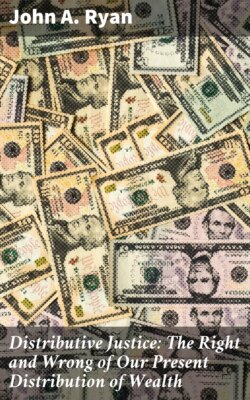Читать книгу Distributive Justice: The Right and Wrong of Our Present Distribution of Wealth - John A. Ryan - Страница 12
На сайте Литреса книга снята с продажи.
How the Change Probably Took Place
ОглавлениеTable of Contents
The change from tribal to private landownership could have occurred in a great variety of ways. For example, the chief, patriarch, or king might have gradually obtained greater authority in making the allotments of land among the members of the tribe or group, and thus acquired a degree of control over the land which in time became practical ownership; he might have seized the holdings of deceased persons, or of those who were unable to pay him the tax or tribute that he demanded, or of those who were for any reason obnoxious to him. Again, the taxes paid to the chief man in a community for his services as ruler might have come in time to be regarded as a payment for the use of the land, and therefore as an acknowledgment that the chief was also the landlord. Even in the Middle Ages the rents received by the feudal lords were in great measure a return for social and political services, just as are the taxes received to-day from private landowners by the State. In primitive times, as well as later on, the chief would naturally do his best to convert this institution of tax paying or tribute paying into rent paying, and to add the position of landowner to his other prerogatives. After all, the transition from tribal ownership, with private cultivation and private receipt of the produce of individual allotments, to overlordship and landlordism, would not have been greater than that which actually took place in England between the fifteenth and the nineteenth centuries, when the lords became absolute owners of land that they had previously held with their tenants in a sort of divided or dual ownership. In a word, tribal ownership could have been displaced by landlordism through the same methods that have been used everywhere by the powerful, the ambitious, and the greedy against the weak, the indifferent, and the upright. Nor must we forget the influence of conquest. Most of the countries that appear in historical times with a system of private ownership had at some previous period been subjugated by an alien people. In many of these the conquerors undoubtedly introduced a considerable degree of individual ownership, the more powerful among them becoming landlords, while their weaker companions and the mass of the conquered population were established in a condition of tenancy.
Where a somewhat widely diffused private ownership succeeded the primitive system, it was probably due to the free action of the cultivators, as soon as they came to realise the inconveniences of ownership in common. "Any enclosed land round their permanent dwellings, and any land outside the settlement which was cleared, reclaimed, and cultivated, or occupied with cattle by individuals or families, was recognised as their personal property. Only those who were industrious, enterprising, and courageous enough would clear, occupy, retain, cultivate, and defend waste land. They would become personal owners of cattle, and would gradually acquire wealth which would enable them to employ others and still further improve their position. As their power increased, and as population grew, the bravest, wealthiest, and most capable fighting men amongst them would become chiefs or a species of nobles, and the force of circumstances, often no doubt aided by force and fraud, would eventually make them the landowners of the greater part of the district, with the more or less willing acquiescence and consent of the community amongst whom they lived, and to whom they extended their protection."[6]
